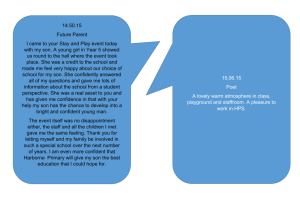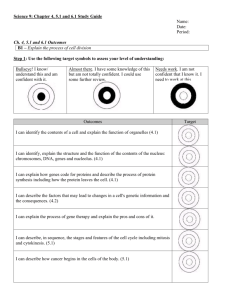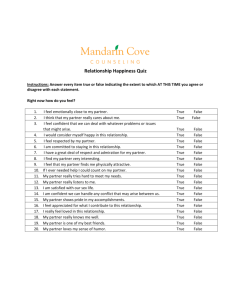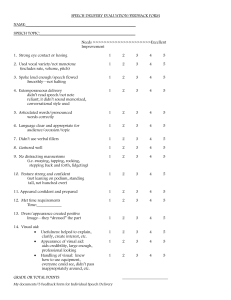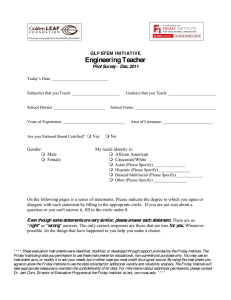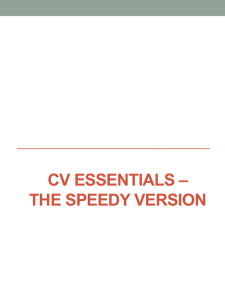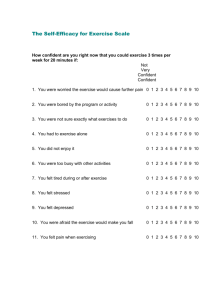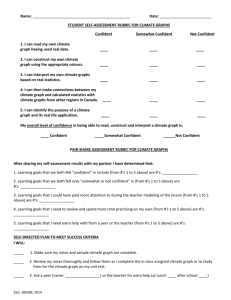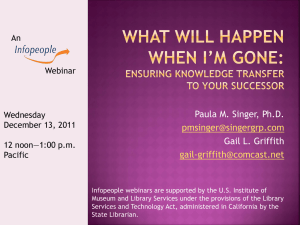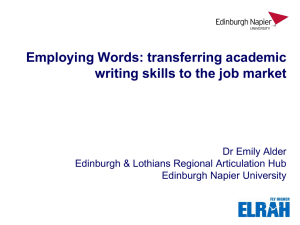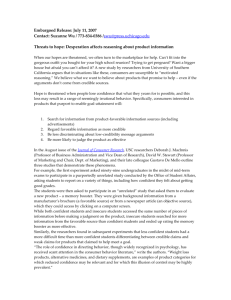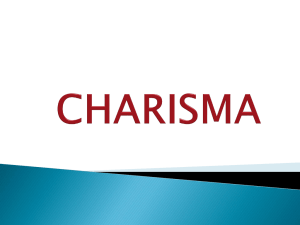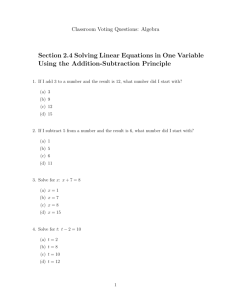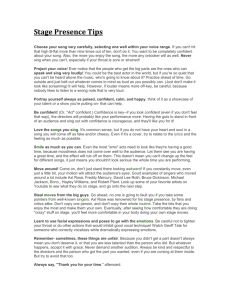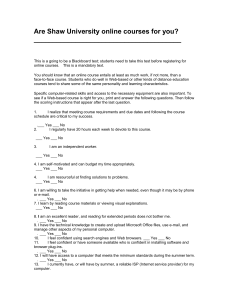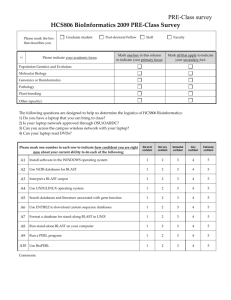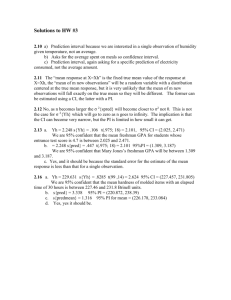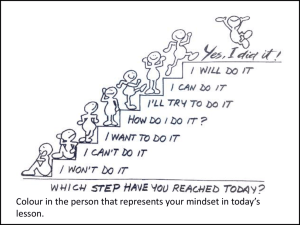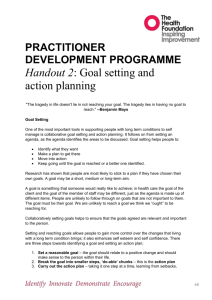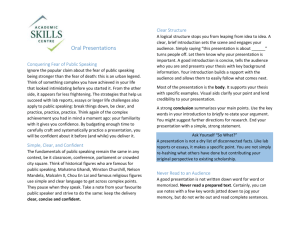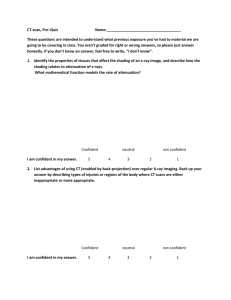Audit table
advertisement
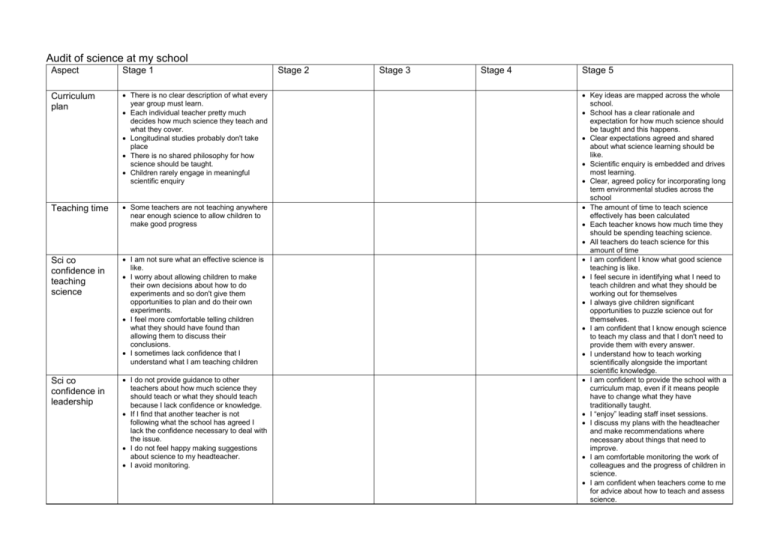
Audit of science at my school Aspect Stage 1 Curriculum plan There is no clear description of what every year group must learn. Each individual teacher pretty much decides how much science they teach and what they cover. Longitudinal studies probably don't take place There is no shared philosophy for how science should be taught. Children rarely engage in meaningful scientific enquiry Teaching time Some teachers are not teaching anywhere near enough science to allow children to make good progress Sci co confidence in teaching science I am not sure what an effective science is like. I worry about allowing children to make their own decisions about how to do experiments and so don't give them opportunities to plan and do their own experiments. I feel more comfortable telling children what they should have found than allowing them to discuss their conclusions. I sometimes lack confidence that I understand what I am teaching children Sci co confidence in leadership I do not provide guidance to other teachers about how much science they should teach or what they should teach because I lack confidence or knowledge. If I find that another teacher is not following what the school has agreed I lack the confidence necessary to deal with the issue. I do not feel happy making suggestions about science to my headteacher. I avoid monitoring. Stage 2 Stage 3 Stage 4 Stage 5 Key ideas are mapped across the whole school. School has a clear rationale and expectation for how much science should be taught and this happens. Clear expectations agreed and shared about what science learning should be like. Scientific enquiry is embedded and drives most learning. Clear, agreed policy for incorporating long term environmental studies across the school The amount of time to teach science effectively has been calculated Each teacher knows how much time they should be spending teaching science. All teachers do teach science for this amount of time I am confident I know what good science teaching is like. I feel secure in identifying what I need to teach children and what they should be working out for themselves I always give children significant opportunities to puzzle science out for themselves. I am confident that I know enough science to teach my class and that I don't need to provide them with every answer. I understand how to teach working scientifically alongside the important scientific knowledge. I am confident to provide the school with a curriculum map, even if it means people have to change what they have traditionally taught. I “enjoy” leading staff inset sessions. I discuss my plans with the headteacher and make recommendations where necessary about things that need to improve. I am comfortable monitoring the work of colleagues and the progress of children in science. I am confident when teachers come to me for advice about how to teach and assess science. Teacher’s confidence in teaching science. Assessment Tracking Resources Heavy reliance on worksheets. Very few opportunities for children to follow their own lines of enquiries or work out how to do experiments for themselves. Teachers tend to tell children the ‘answers’. Experimental work is rare. Writing is usually descriptive or instructional or answering closed questions Children rarely have opportunities to explore their own ideas. Planning is focussed more upon the activities children will do than what pupils must learn. There is very little checking of learning happening in lessons. Teachers rarely adapt what they are teaching in the light of assessment in lessons Teachers spend most of their time either talking to the whole class or helping children with logistical matters. Questioning is closed and usually to the whole class. Teachers do not keep any records of what children are learning and no information is kept or passed on to the next teacher The lack of resources severely curtails the experiments that teachers need or want to do. Resources are poorly organised and teachers find it difficult to find them. There is not enough money to buy the resources teachers need. The lack of resources mean children usually work in practical groups larger than 3 Virtually all teachers are confident to allow children to design and carry out their own experiments. Teachers explain science ideas clearly and in interesting ways. Writing in science is purposeful, high quality and adds to the science learning. Children are regularly given meaningful opportunities to explore their own ideas through talk and experiment. Teachers are confident what children must learn from lessons as opposed to what they want them to do There is a consistent culture in science lessons where children’s understanding is regularly checked during lessons. Teachers adapt their lessons in light of what they find from assessment Teachers communicate what is being learned clearly with children. Teachers are skilled at assessing all children’s understanding. Every teacher knows which children in the class are on track and which are not and they keep a meaningful record of this. This information is passed onto the next teacher in a way that informs the next teachers practice. The school has good evidence about how well all children progress with science. There are sufficient resources for teachers to do all the practical work they plan. Children never work in groups larger than three (unless it is deemed helpful to learning) Teachers are able to purchase new equipment if it is considered necessary as and when they need it. All teachers know what equipment is available or know how to find out easily
